Winning the right projects through construction bidding is one of the most critical steps for any contractor or construction company aiming to grow its business. A well-structured bidding process not only provides opportunities for new construction jobs but also helps business owners establish credibility and trust within the industry.
This guide will walk you through the essentials of construction bidding, from understanding the basics and terminology to crafting winning bids and navigating contract negotiations. If you’re a property or real estate developer, this post will arm you with the knowledge to work effectively with contractors through the bidding process.
Understanding the Construction Bidding Process
What is Construction Bidding?
Construction bidding is the process where contractors submit proposals in response to solicitations from property developers or project owners, outlining their plan and cost to complete a construction project. General contractors play a key role in this process by submitting bids, managing the selection of subcontractors, and utilizing software to streamline their bidding and project management efforts.
It’s one of the most crucial steps in securing construction jobs, as it determines which contractor will be awarded the project. Bidding involves estimating costs, preparing proposals, and negotiating terms, making it integral to project delivery and success within the construction industry.
Key Construction Bidding Terminology
Here are some common terms you should know:
- Bid Solicitation: Inviting contractors to submit proposals for a construction project.
- Bid Package: The documents and details a project owner provides to contractors, outlining the project’s requirements, timeline, and scope.
- Bid Submission: The process of presenting a formal bid before the designated deadline.
- Guaranteed Maximum Price (GMP): A contractual agreement where the contractor guarantees not to exceed a specified cost for the project.
Understanding these terms is vital as you encounter different stages of the construction bidding process.

The Construction Bidding Process
The bidding process can be broken down into four essential steps:
1. Bid Solicitation
The first step in the bidding process is soliciting bids. This happens when project owners issue an Invitation for Bid (IFB), Request for Proposal (RFP), or Request for Quote (RFQ) to invite contractors. These bid solicitations include a bid package containing details such as:
- Project specifications
- Timeline
- Budget
Contractors review the bid package to assess whether the project aligns with their expertise and resources.
2. Estimating and Bid Preparation
Once interested contractors confirm alignment, they begin preparing their bids. This step involves:
- Estimating Costs: Calculating expenses for labor, materials, and equipment. State-of-the-art project management tools can help contractors create accurate estimates.
- Reviewing Bid Documents: A thorough understanding of the bid package ensures contractors can craft bids that address all project specifications.
- Preparing Documents: Contractors compile their submission, including important information such as team qualifications and detailed project cost estimates.
3. Bid Submission and Selection
Bids are submitted by a specified deadline. After that, project owners:
- Evaluate proposals based on cost, expertise, and adherence to requirements.
- Conduct interviews or follow-ups (when necessary).
- Select the contractor whose proposal aligns most with the project objectives (often referred to as the bid selection process).
4. Negotiations and Commitment
Following selection:
- Contractors and project owners negotiate final terms, modifying elements like scope, price, and timeline if needed.
- Once negotiations are complete, both parties sign a construction contract, solidifying their commitment.
- Construction commences under agreed-upon terms.
Each of these stages is crucial for ensuring mutual success between the contractor and the project owner. For competitive bids, contractors need thorough preparation, while developers must clearly communicate their expectations.

Construction Projects and Bidding Strategies
Choosing the Right Construction Projects
Not every project is the right fit for every contractor. Here’s how contractors can assess potential projects:
- Focus on projects that align with their expertise and available resources.
- Include private projects in the listings to explore a variety of opportunities across residential, retail, and public sectors.
- Carefully review bid documents and project specifications to avoid misunderstandings.
- Consider project timelines and the complexity of requirements—longer timelines or higher complexity may not always align with current capacity.
Contractors prioritizing appropriate fits tend to maintain a higher bid hit ratio, reducing wasted effort on unsuitable projects.
Clarifying Uncertainties Early On
Miscommunication is one of the biggest hurdles in the bidding process. Contractors and project owners can avoid issues by:
- Reviewing bid packages thoroughly for potential ambiguities.
- Asking questions or requesting clarification from the project owner whenever necessary.
- Engaging in early discussions regarding concerns like deadlines, budgets, or construction site details.
A collaborative approach early on ensures smoother project delivery and helps prevent disputes during construction.
Construction Bids and Contract Types
Understanding the types of contracts is essential for successful construction bidding. These formats are commonly used:
- Lump-Sum Contracts: A fixed price for the entire project.
- Time and Materials Contracts: Payment based on actual labor hours and materials used.
- Cost-Plus Contracts: Covers defined costs, plus an agreed profit or fee for the contractor.
Choosing the correct contract type is a shared responsibility between contractors and project owners, ensuring everyone is aligned on expectations.
Types of Construction Contracts
Understanding the various types of construction contracts is crucial for both contractors and project owners. These contracts outline the scope of work, payment terms, and other essential details, ensuring that both parties are aligned on expectations. Here are some of the most common types of construction contracts:
- Lump Sum Contract: A lump sum contract, also known as a fixed-price contract, is where the contractor agrees to complete the construction project for a predetermined price. This type of contract is ideal for small to medium-sized projects with a well-defined scope of work. The main advantage is cost certainty for the project owner, but it can be risky for contractors if unforeseen issues arise.
- Time and Materials Contract: In a time and materials contract, the contractor is paid based on the actual time spent and materials used for the project. This contract type offers flexibility, making it suitable for projects where the scope is not clearly defined. However, it requires close monitoring to avoid cost overruns, which can be a concern for project owners.
- Cost-Plus Contract: A cost-plus contract involves the project owner reimbursing the contractor for the actual costs incurred, plus an agreed-upon fee or percentage. This type of contract is often used for large, complex projects where the scope may change. While it provides transparency and flexibility, it can lead to higher costs if not managed properly.
- Unit Price Contract: With a unit price contract, the contractor is paid a fixed amount for each unit of work completed. This contract is beneficial for projects with repetitive tasks, such as road construction or utility installations. It allows for easy adjustments if the project scope changes, but accurate estimation of units is essential to avoid disputes.
- Guaranteed Maximum Price (GMP) Contract: A GMP contract sets a maximum price that the project owner will pay, with the contractor covering any costs that exceed this limit. This contract type provides cost control for the project owner while allowing some flexibility in the scope. It is commonly used for large projects where cost certainty is crucial, but it requires detailed planning and accurate cost estimation.
By understanding these contract types, contractors and project owners can choose the most suitable agreement for their construction projects, ensuring a smoother and more successful collaboration.
Bid Package Contents
Comprehensive bid packages provide clarity for contractors and enhance the likelihood of success. A good bid package should include:
- Project details like drawings or blueprints.
- Clear documentation of the expected scope, timeline, and milestones.
- Budget details or financial metrics (for better cost accuracy).
An effective bid package offers contractors the insight to deliver tailored, competitive proposals.

Winning Construction Bids
Strategies for Successful Bidding
Here are some actionable tips contractors can leverage:
- Double-check project requirements to ensure no details are overlooked.
- Submit accurate and detailed bids—mistakes or vagueness can hurt credibility.
- Compare previous bids to refine proposals, learning from any past errors.
Industry Insights for Contractors
- Stay updated on construction bidding websites like BidClerk and Construction Bid Source for new opportunities.
- Learn from past projects, adapting strategies for future proposals.
- Engage in relationships with project owners and stakeholders for repeat business.
Resources and Tools for Streamlining Bidding
Platforms like Procore, BuildingConnected, and Dodge Construction Central simplify the bidding process, offering tools to track deadlines, manage bid documents, and monitor project performance.
Leveraging these resources helps contractors stay competitive, especially when soliciting bids for government contracts or commercial construction projects.

Construction Bidding Websites and Tools
In today’s digital age, construction bidding websites and tools have become indispensable for contractors seeking new opportunities and project owners looking for reliable partners. These platforms streamline the bidding process, making it easier to find and secure construction jobs. Here are some of the most popular construction bidding websites and tools:
- BidClerk: BidClerk is a comprehensive construction bidding website that offers access to a vast database of construction projects. Contractors can search for projects by location, type, and other criteria, making it easier to find suitable opportunities. The platform also provides detailed project information, helping contractors prepare accurate and competitive bids.
- Construction Bid Source: Construction Bid Source connects contractors with a wide range of construction projects. The platform allows users to search for projects based on various filters, ensuring they find the most relevant opportunities. With its extensive database and user-friendly interface, Construction Bid Source is a valuable tool for contractors looking to expand their business.
- Dodge Construction Central: Dodge Construction Central is a leading construction bidding website that offers detailed project data and analytics. Contractors can access information on upcoming projects, track industry trends, and gain insights to improve their bidding strategies. The platform’s robust features make it a go-to resource for staying ahead in the competitive construction industry.
- ConstructConnect: ConstructConnect provides a powerful platform for finding and managing construction projects. With its extensive project database and advanced search capabilities, contractors can easily identify opportunities that match their expertise. The platform also offers tools for tracking bids, managing documents, and collaborating with team members, enhancing overall efficiency.
- BidNet: BidNet specializes in government contracts, offering a vast database of public sector projects. Contractors can search for opportunities by location, type, and other criteria, ensuring they find the most relevant government projects. BidNet’s focus on government contracts makes it an essential tool for contractors looking to enter or expand in the public sector.
When choosing a construction bidding website or tool, it’s essential to consider factors such as the size and scope of the projects listed, the level of competition, and the cost of using the platform. By leveraging these resources, contractors can streamline their bidding process, increase their chances of winning projects, and ultimately grow their business in the construction industry.
Achieve More with Improved Bidding Processes
Success in construction bidding requires more than just strong numbers—it demands a thorough understanding of the bidding process, the ability to communicate clearly, and a strategic approach to choosing the right projects.
By sharpening their processes and adopting tools tailored to the construction industry, contractors can improve their bid hit ratio, win higher-quality projects, and build lasting partnerships with project owners.
Want to manage your bids more effectively? Explore platforms like BuildingConnected and Procore to optimize every step of your construction jobs. A smarter bidding strategy means more success—and better results in the construction industry.

Why You Should Hire South Coast Improvement Company
Hiring South Coast Improvement Company (SCIC) for your construction projects ensures a seamless and successful experience from start to finish. With a proven track record in delivering quality projects on time and within budget, SCIC stands out due to its commitment to excellence and customer satisfaction. Their team of seasoned professionals brings extensive expertise across various segments, including commercial renovation, healthcare, senior living, and education.
SCIC prioritizes communication, ensuring clients are informed and involved in every stage of the project. By adopting innovative construction methods and maintaining close industry partnerships, SCIC guarantees results that not only meet but often exceed expectations. Opting for South Coast Improvement Company means entrusting your project to a team that values integrity, craftsmanship, and longstanding client relationships.

Essential Resources for Construction Success
To enhance your construction projects and bidding strategies, consider utilizing the following resources and tools. Each offers unique capabilities to streamline processes and improve outcomes:
- Procore: An all-in-one construction management platform that helps with project management, document control, and collaboration.
- BuildingConnected: A bid management and construction network platform that simplifies the communication and organization of bid packages.
- Dodge Construction Central: Provides comprehensive project data and analytics to help secure new opportunities and stay ahead of industry trends.
- BidClerk: A platform for finding commercial construction projects and bidding opportunities in your area.
- Construction Bid Source: A resource to discover new project leads and connect with potential clients.
- PlanHub: Offers a cloud-based solution for managing bids and finding contractors, subcontractors, and leads.
- CoConstruct: A construction project management software designed for custom builders and remodelers to estimate projects, schedule efforts, and communicate effectively with clients.
- RedTeam: An innovative construction management system that streamlines project delivery, handling contracts, change orders, and financial management in a collaborative environment.
- PlanGrid: Offers real-time collaboration by allowing teams to access blueprints and documents anywhere, enhancing field productivity and reducing errors.
- Buildertrend: A cloud-based platform that enhances communication, budgeting, and project scheduling for home builders and remodelers, fostering seamless operations from start to finish.
- Bluebeam Revu: Provides powerful PDF editing tools tailor-made for the construction industry, facilitating markup, takeoffs, and collaboration on project documents.
View Our Work
Brandywine Haverford Estates by Monarch
South Coast Improvement Company has completed interior renovations at the senior living community, Brandywine Haverford Estates by Monarch. We were entrusted with enhancing the facilities, and the results speak for themselves. The team brought diligence and...
Nouveau Marc by Barclay House
South Coast Improvement Company proudly partnering with QSL Management delivered a comprehensive renovation at Nouveau Marc by Barclay House, a premier senior living community. This project focused on revitalizing key resident areas with an emphasis on safety,...






